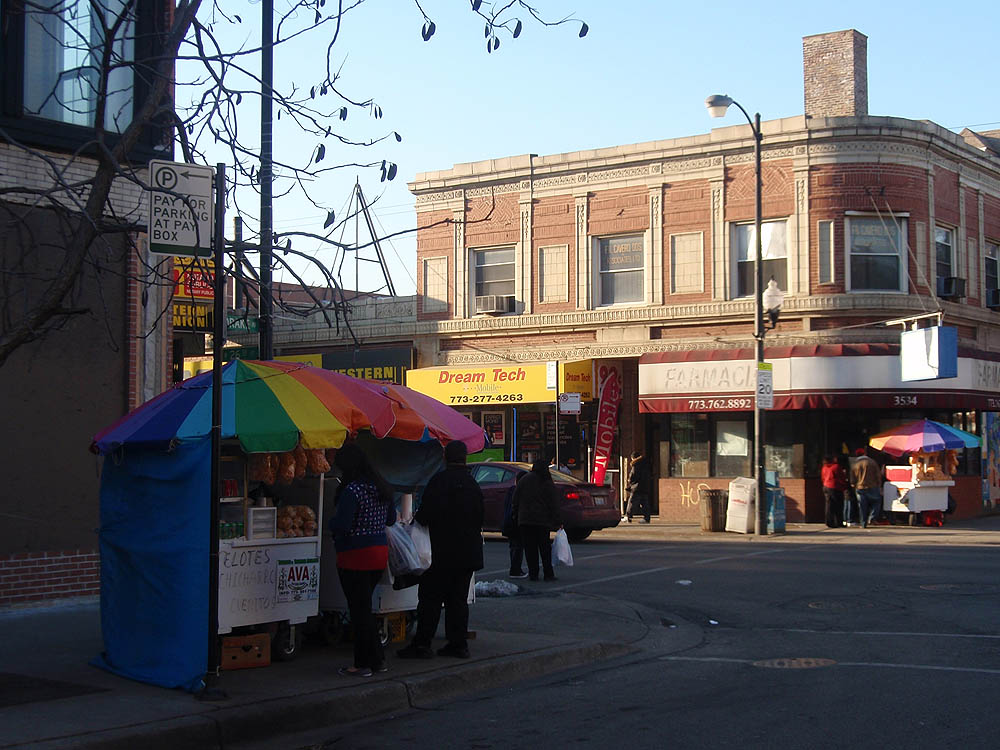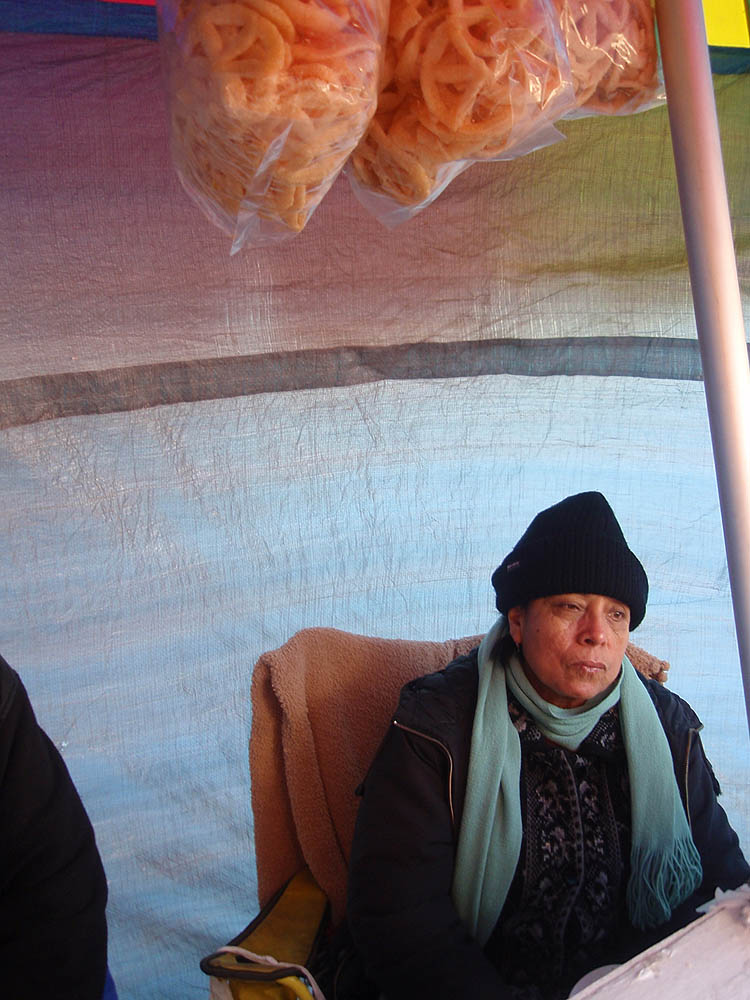| « Friday Foodporn: Brunch | Chef Week: Big Jones » |
Feature Fri Mar 19 2010
Chicago's Latino Street Vendors Look for Justice

[Editor's note: This article was written by freelance writers Aixa Velez and Araceli Pedroza.]
For years, street vendors in Chicago's Latino neighborhoods have fought to legalize the selling of prepared warm food.
In Chicago's Little Village neighborhood, there are more than 200 street vendors that sell their food products throughout the year on 26th Street between Kedzie and Cicero Avenues.
The Asociacion de Vendedores Ambulantes (AVA), also known as the Street Vendor Association, meets every Wednesday at noon at 2800 South Hamlin. They are currently organizing a campaign to reform the current city ordinance that states their sales are illegal. They plan to present their proposal to the city in November 2010.
"I am hopeful that the new ordinance will pass," said Augusto Aquino, director of the AVA.
The vendors are seeking licenses that will allow them to sell their prepared food from their cart. There are organizations that support the vendors in making sure they are treated fairly and have a voice when facing the city's regulations.
Aside from the AVA, another organization that helps the vendors is the Chicago Workers Collaborative. CWC officials refused comment, but according to its Web site, the collaborative's mission is to "help build the AVA's leadership so the vendors can organize to stop repressive police action and convince the city to adopt an ordinance that would enable them to obtain a license to legally prepare food."
Many vendors on the South Side sell the same products: elotes (corn); chicharrones (pork rinds) and chips.
One of the main reasons for not allowing warm food to be prepared is due to sanitary and health risks, said Efrat Stein, a spokesperson for the Chicago Department of Business Affairs and Licensing.
"If health is a concern, I have never heard of anyone getting sick off of eating elotes," Aquino said.
 According to the Chicago Department of Business Affairs and Licensing, there are currently 1,404 street vendor licenses selling in Chicago. There are two types of street vendor licenses: food and non-food.
According to the Chicago Department of Business Affairs and Licensing, there are currently 1,404 street vendor licenses selling in Chicago. There are two types of street vendor licenses: food and non-food.
Of all of street vendor licenses, 477 of them are food vendor licenses. In order to obtain a license, one must be at least 16 years old, show identification, such as a driver's license or photo ID, have an Illinois business tax number and must not owe any outstanding debt to the City of Chicago. Each license is good for two years and costs $165.
"This license allows fruit or vegetables to be sold that are not cut or prepared," Stein said. Many street vendors obtain the license, but still prepare and sell warm food illegally. "They may be licensed but operating outside of the requirements," Stein said.
Vendors such as Marcela Salgado make a living by selling food from her cart. Salgado and her husband work almost every afternoon and evening (about 300 days per year) at the same corner on 26th Street and Drake. They've been selling for eight years, yet still live under the fear of being harassed or fined by the city.
 If vendors are caught violating the license's city ordinance, the fines range anywhere between $50 and $200 each time, Stein said. Stein did not have any data on how many times vendors are fined.
If vendors are caught violating the license's city ordinance, the fines range anywhere between $50 and $200 each time, Stein said. Stein did not have any data on how many times vendors are fined.
The city conducts frequent license checks throughout the year. When Stein receives complaints from callers, she sends one of 30 investigators to check out the street vendor.
Currently, a mobile food dispenser license allows street vendors to sell prepared foods, but only if the food was prepared in a licensed business establishment.
Street vendors said they can only hope that a new ordinance will pass in their favor, and if not, at least have a fine-free year and more cooperation from city officials.
"They (the city) have been trying to remove us (from selling) the last two years, but since we have a street vendors association, they are trying to make change in the ordinance so we can stay," Salgado said.
(More pictures here.)
This feature is supported in part by a Community News Matters grant from The Chicago Community Trust and the John S. and James L. Knight Foundation.









Mike Reilley / March 19, 2010 8:37 PM
Great job by Aixa and Araceli on a story that has been widely overlooked in mainstream media. And thanks to Gapers Block for publishing their piece!